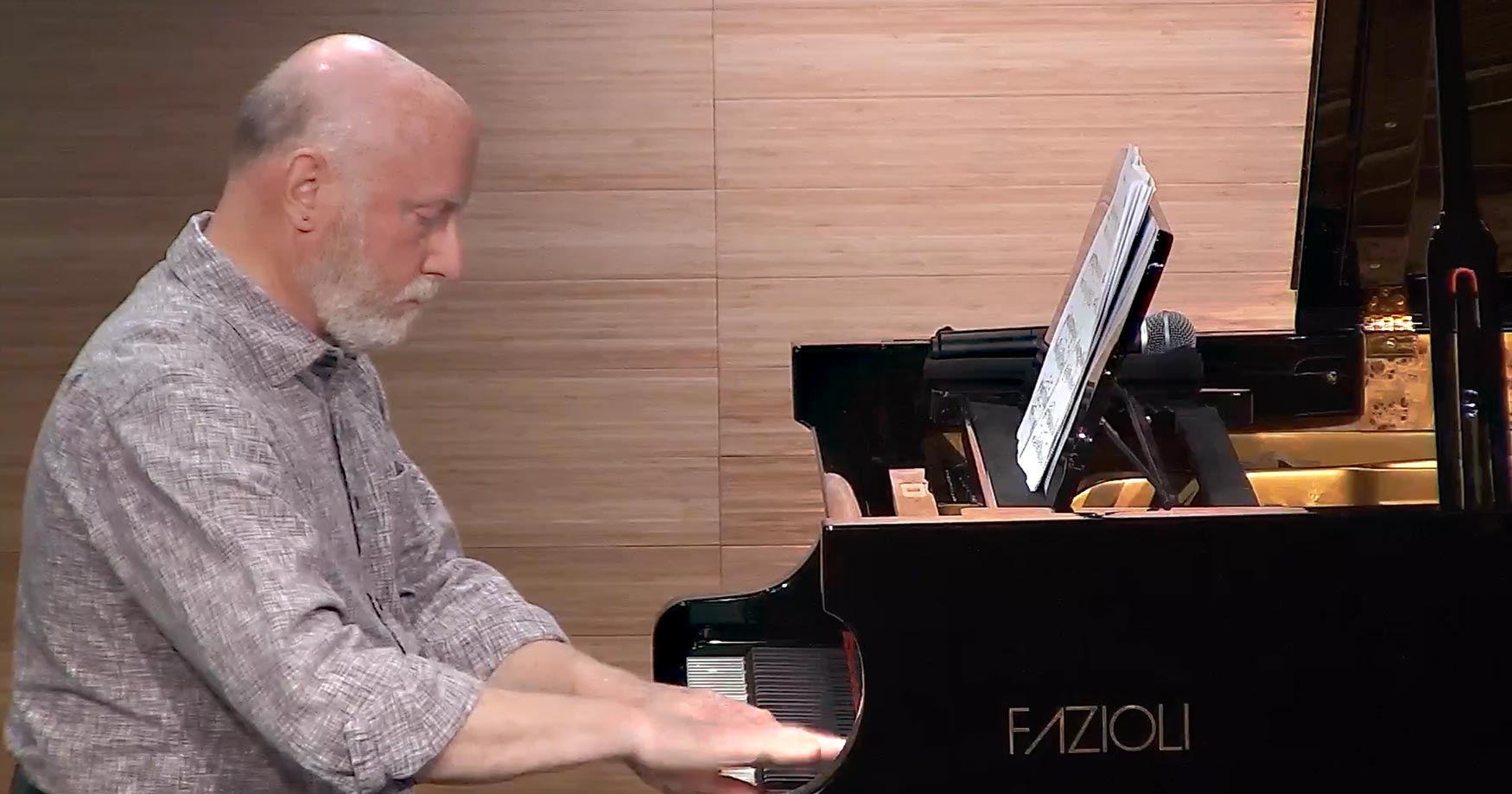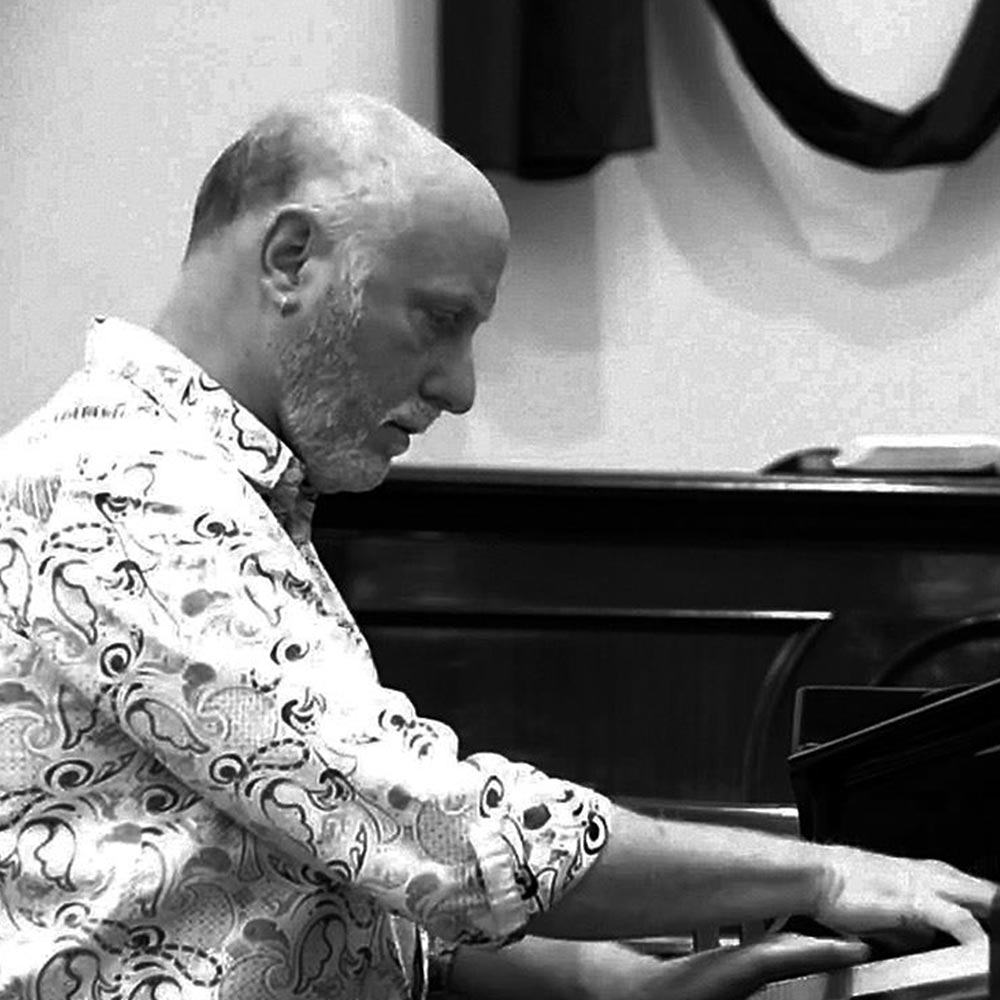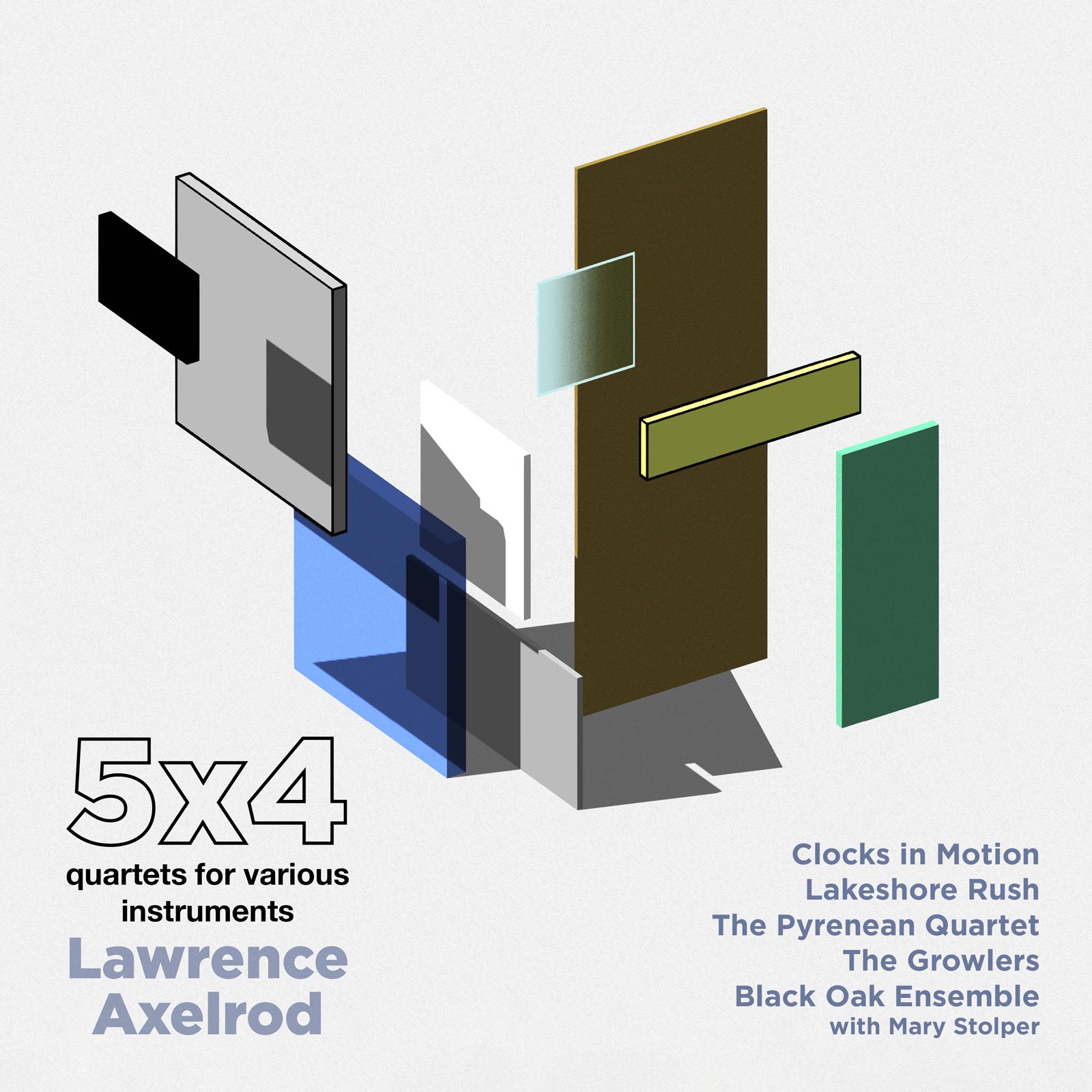
At times meditative, at times sparklingly abstract, 5X4 is an album of contrasts. Composer Lawrence Axelrod offers a multi-faceted selection of original compositions which push the limits of musical craft – all contained within the quartet setup, but in varying instrumentations.
Today, Lawrence is our featured artist in “The Inside Story,” a blog series exploring the inner-workings and personalities of our composers and performers. Read on to learn about his practices in Buddhism and the grounded perspective it provides him…
Tell us about your first performance.
The first performance of a work of mine was in high school. The head of the music department and conductor of the glee club was very supportive of my budding interest in composition. He encouraged me to write a short piece for the glee club. I set Robert Frost’s A Prayer in Spring, a lovely non-theistic homage to the season. I was 15 when I wrote it. I still think the tune is nice!
What emotions do you hope listeners will experience upon hearing your work?
More than anything, I hope hearing my music will provoke someone to want to listen a second time. It’s my personal litmus test when I hear new works by others.
What are your other passions besides music?
I am a Buddhist meditator in the Insight Meditation tradition. The grounding and perspective that I gain through contemplative practice informs everything I do. I am also an ardent environmentalist. Being in nature and connecting with nature is of paramount importance to me. (One of my pandemic pieces is titled Talking to Trees!)
What’s the greatest performance you’ve ever seen, and what made it special?
There have been so many great performances — it’s hard to choose. One, that has more impact in hindsight, is that I saw Arthur Rubinstein’s last performance in Carnegie Hall in the spring of 1977. I knew it was important, but I didn’t get that it really was historic at the time.
At the opera, one of the greats was Billy Budd with Nathan Gunn in the title role. He was just emerging onto international stages at that point. The singing, acting, and production were all superb, but in the final scene, he was hoisted by a very well-concealed wire — something like 30 feet in the air and left to hang there for many minutes after his execution.
If you could collaborate with anyone, who would it be?
On the performance end, I would love to collaborate with Orpheus Chamber Orchestra. I have been a fan of theirs for decades and have always admired the care and beauty of their performance.
In an operatic setting, I would love to work with either Salman Rushdie or Armistead Maupin as a librettist. Each has a wild, interesting, and informed view of life that is decidedly different from most writers.
What are your musical influences?
I started composing when I was very young, but went to grad school for orchestral conducting. I never took an official orchestration class connected with composition studies. While I certainly had the usual orchestration books on my music shelf, when I had a question, I usually went first to the works of Debussy, Ravel, and Bartok for examples. As a result, I think there are certain gallicisms in the sound of my music. After I began encountering more of the musical avant garde, Witold Lutoslawski’s music became a beacon.

A recent review in Opera News states that Lawrence Axelrod is “a … composer whose fresh and distinctive music deserves to be more widely known.” At once composer, pianist, and conductor, Axelrod’s musical activities have taken him around the United States, Europe, South Africa, Australia, and New Zealand. As a composer, Axelrod has had works performed by ~Nois Saxophone Quartet, the London Sylvan Ensemble, Quintet Attacca, The Chicago Composers Orchestra, Palomar, Ensemble Dal Niente, Pinotage, The Lincoln Trio, The Duo Ahlert/Schwab, and The Verdi String Quartet in recent seasons. Frissons was premiered by ~Nois on a concert devoted to new music for saxophone quartet in June 2019.

